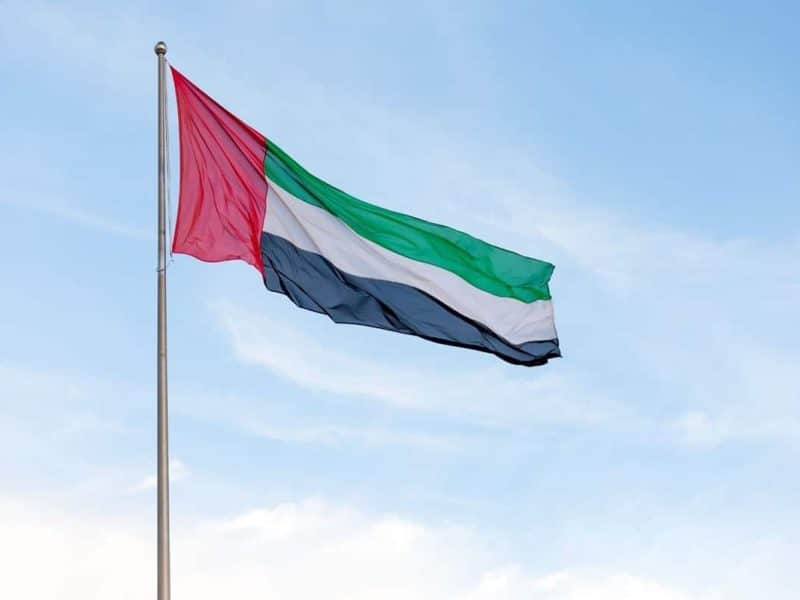Mark Twain once wrote ‘the secret of getting ahead is getting started. The secret of getting started is breaking your complex overwhelming tasks into smaller manageable tasks, and then starting on the first one.”
When you are setting up a business there’s a lot to consider, whether you are a bootstrap startup or an established company looking to expand into a new territory. Many of those considerations focus around the ‘how’ and the ‘what’, but perhaps the most important questions speak to the why: Why is my product or service necessary? Why are we going to succeed? Why should we set up shop in a particular location?
Over recent months, the Emirates has set its stall out to answer that last question, ‘Why should you create your business in the UAE?’
Its answer is a raft of legislative changes designed to make the UAE one of the most attractive places in the world to open, or relocate, a business.
Most recently of these Dubai announced a major restructuring of its business chambers to focus on commerce, the digital economy and international business, appointing local and expat business leaders and creating three new entities, the Dubai Chamber of Commerce, Dubai Chamber of Digital Economy and Dubai Chamber of International Trade.
Announcing the new initiative, Sheikh Mohammed bin Rashid Al Maktoum, Vice President and Prime Minister of UAE and Ruler of Dubai, said: “Today we are the global capital of economy. Today, we are thinking about the next 50 years, and we are also thinking for future generations. My message to all is that the economy is our priority, and you are our partners.”
Change at the top
Dubai will focus on fuelling trade with 30 priority markets while seeking to attract more than 50 new large multinational companies under objectives set by the newly established Dubai Chambers. The priorities also include more than 300 startups establishing a presence in the emirate.
“The transition to a three-Chamber model is a paradigm shift for business in Dubai, which will strengthen the emirate’s position as a digitally-driven economy and global business hub. The new structure enables the various chambers to adopt a more specialised and effective approach toward achieving the strategic ambitions,” said Dubai Chamber’s chairman Abdulaziz Al Ghurair.
“We look forward to working with key stakeholders from the public and private sectors to ensure a favourable business environment in Dubai, create new trade and investment opportunities, attract top talent and businesses from around the world and pave the way for sustainable economic growth,” he said, and added that the changes come at the right time as Dubai prepares its economy for the post-Covid era and the next 50 years.
 Dubai Chambers chairman Abdulaziz Al Ghurair.
Dubai Chambers chairman Abdulaziz Al Ghurair.
The new masterplan is the seventh developed for the emirate since 1960. The population of Dubai has multiplied 80 times from 40,000 in 1960 to 3.3 million by the end of 2020 and increased in cultural diversity to include people from over 200 nationalities. The chairman also said that the three chambers will play a crucial role in driving Dubai’s economic development and achieving the target of boosting the value of the emirate’s foreign trade to $2 trillion by 2026.
Also in June, came an announcement that will be music to most entrepreneurs and businesses – a decision to reduce government procedures for doing business in Dubai by 30 percent. The move was announced by Sheikh Hamdan bin Mohammed bin Rashid Al Maktoum, Crown Prince of Dubai and Chairman of The Executive Council of Dubai, and is aimed at consolidating the emirate’s status as a global investment and business destination.
Scott Cairns, founder and managing director of Creation Business Consultants, said the latest announcement further cemented Dubai’s place as the leading investment destination in the region. “For businesses looking to set-up in Dubai, or those already operating in the region, this news should translate into tangible results.
“Firstly, there should be a decrease in the costs to set-up a business due to the cutting of red tape. Secondly, a reduced administrative burden on company incorporations will greatly expedite the process for those businesses with a time sensitive deadline.”
 Scott Cairns, founder and managing director of Creation Business Consultants.
Scott Cairns, founder and managing director of Creation Business Consultants.
The UAE is ranked 16th among 190 economies for ease of doing business, according to the latest World Bank annual ratings, ahead of powerhouses including Germany, Japan, China, France and Italy. The country scored particularly well on how easy it was to launch a business. A busy June for improvements, the month started on the 1st with a “watershed moment” for the UAE as the amended Commercial Companies Law, allowing foreign investors and entrepreneurs to establish and fully own onshore companies, came into effect.
Ownership rules
Foreign investors of any nationality are now allowed to own 100 percent of the shares of a mainland company. They will be able to establish their company anywhere in the UAE, without the need for a local partner to hold 51 percent of its shares.
There will be a few exceptions to the rule, in areas deemed of strategic national interest. Beneficiaries will include sectors such as contracting; vehicle, food, chemicals, electronics, textile trading, food, garment manufacture, construction materials, cosmetics, electronics, equipment, manufacturing and production.
Reza Afshar, CEO of SFM Corporate Services Dubai, says: “This change in the country’s corporate ownership laws will undoubtedly grab investor attention at a time when countries are competing for investment to kick-start a post-pandemic recovery.
“Multinationals that have opted against establishing a free zone entity, and have instead worked through agents and distributors, which are no longer required, may look again at establishing direct subsidiaries.
“For companies that have not yet established a MENA operations hub, the move reinforces the perception that the UAE is the best place to locate a regional head office. One option for companies that want to enter the regional market is to outright acquire an existing UAE company operating in their field.”
 Reza Afshar, CEO of SFM Corporate Services Dubai.
Reza Afshar, CEO of SFM Corporate Services Dubai.
The enhancements seem to be paying off for those already in the UAE, with SMEs more optimistic than their regional counterparts about the next 12 months, with 88 percent saying the future looks bright, compared to the regional average of 81 percent, research from Mastercard shows.
Further, two-thirds of SMEs in the UAE project that revenues will grow or hold steady over the period, with access to funding, acceptance of digital payments and training and upskilling of staff as the main drivers of growth.
In April, the UAE announced an $8.2bn financial support package for SMEs and startups that were working to recover from the pandemic.
With 40 percent of respondents identifying easier access to funding as the biggest driver of growth, the government’s initiative is another avenue available to secure investment. However, 38 percent cited there was a need for easier access to capital and funding.
Dubai is expected to attract up to 250 more startups this year, more than the city has seen set up shop in the last three years, Mohammad Alblooshi, sector head fintech and innovation at the Dubai International Financial Centre (DIFC), predicts.
Home for innovation
Alblooshi says Dubai has witnessed a surge in fledgling companies opening their doors in the city over the course of the pandemic, particularly at DIFC’s Innovation Hub, which has witnessed a 29 percent increase in the number of registered firms over the last six months.
“The Innovation Hub is aligned with Dubai Future District’s vision to be the largest innovation district in the region,” he says. “It’s a cluster where today we have more than 350 startups.”
 Mohammad Alblooshi, sector head fintech and innovation at the Dubai International Financial Centre (DIFC).
Mohammad Alblooshi, sector head fintech and innovation at the Dubai International Financial Centre (DIFC).
And he told the ‘UAE: The growth of a global business hub’ panel session, hosted by The Work Crowd, that he expected that number to increase considerably this year. “I was just doing the numbers this year and we project to attract about 200 to 250 start-ups, which is more than we attracted in the last three years,” he said.
In April, Saeed Khalifa Mohammed Al Fuqaei, chairman of Dubai-based Shuraa Business Setup, revealed the company was dealing with, on average, 60 businesses from across the world per month, looking to move their operations to the emirate.
The assistance isn’t only pointed at the SME sector, with Operation 300bn launched in March. It aims to make the industrial sector the main driver of the UAE economy, contributing AED300 billion to the GDP by 2031, more than doubling today’s contribution.
Commenting on the strategy, Saud Abu Al Shawareb, managing director of Dubai Industrial City and a steering member of the Dubai Industrial Strategy 2030 said: “Manufacturing has been a catalyst of the UAE’s growth and diversification for decades, creating thousands of jobs and investment opportunities. By boosting R&D and building on our achievements, Operation 300bn will boost our knowledge and innovation-based economy and strengthen the emirate’s attractiveness as a global business destination.”
The Ministry of Industry and Advanced Technology is leading the strategy and will roll out programmes and initiatives to support 13,500 industrial SMEs. Sustainable development is among the strategy’s targets and it will focus mainly on industries that implement advanced technology and the Fourth Industrial Revolution (4IR) solutions and applications.










